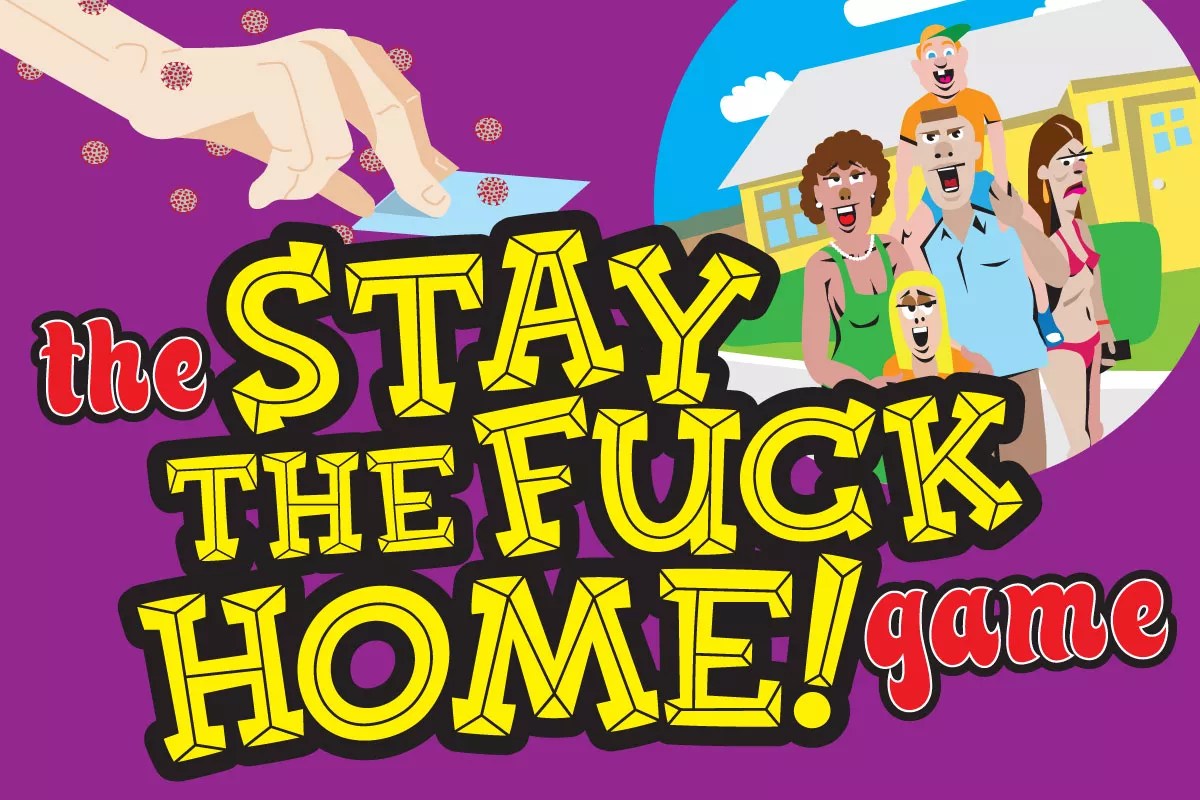

Audio By Carbonatix
Playing the Stay the Fuck Home Gameâ„¢ is simple and fun for the whole family!
All you need is a single die and a unique game piece for each player. (Any old bauble will do.)
Print out the board, then assemble the tiles so they fucking make sense. Cut out the Unwashed Hand of Chance cards, and stack ’em where the game board says to.
To start the game, all players put their game piece at HOME. Each player, in turn, rolls the die and moves that number of steps on the path toward their desired destination.
Will you step up to support New Times this year?
At New Times, we’re small and scrappy — and we make the most of every dollar from our supporters. Right now, we’re $18,000 away from reaching our December 31 goal of $30,000. If you’ve ever learned something new, stayed informed, or felt more connected because of New Times, now’s the time to give back.
Or not. You see, each player has the option of passing on their turn and Staying the Fuck Home and reading a book, watching Netflix, learning a craft, practicing guitar, applying for jobs, trolling people on Reddit, or doing whatever the fuck they want to do.
When a player who declines to Stay the Fuck Home arrives at their destination, they pick the top Unwashed Hand of Chance card, which reveals their fate.
The object of the game is to stay alive and not infect your loved ones.
Good luck!
Download your very own printable and playable copy of the Stay the Fuck Home Gameâ„¢ here!
¡Descarga tu propia copia imprimible y jugable del Stay the Fuck Home Board Game en españolâ„¢ aquí!